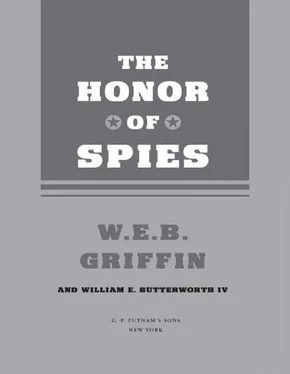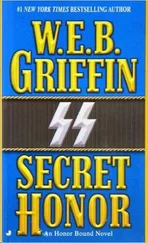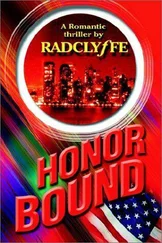W. IV - Honor Bound 05 - The Honor of Spies
Здесь есть возможность читать онлайн «W. IV - Honor Bound 05 - The Honor of Spies» весь текст электронной книги совершенно бесплатно (целиком полную версию без сокращений). В некоторых случаях можно слушать аудио, скачать через торрент в формате fb2 и присутствует краткое содержание. Год выпуска: 2009, ISBN: 2009, Издательство: Putnam Pub., Жанр: Старинная литература, на английском языке. Описание произведения, (предисловие) а так же отзывы посетителей доступны на портале библиотеки ЛибКат.
- Название:Honor Bound 05 - The Honor of Spies
- Автор:
- Издательство:Putnam Pub.
- Жанр:
- Год:2009
- ISBN:9780399155666
- Рейтинг книги:4 / 5. Голосов: 1
-
Избранное:Добавить в избранное
- Отзывы:
-
Ваша оценка:
- 80
- 1
- 2
- 3
- 4
- 5
Honor Bound 05 - The Honor of Spies: краткое содержание, описание и аннотация
Предлагаем к чтению аннотацию, описание, краткое содержание или предисловие (зависит от того, что написал сам автор книги «Honor Bound 05 - The Honor of Spies»). Если вы не нашли необходимую информацию о книге — напишите в комментариях, мы постараемся отыскать её.
Honor Bound 05 - The Honor of Spies — читать онлайн бесплатно полную книгу (весь текст) целиком
Ниже представлен текст книги, разбитый по страницам. Система сохранения места последней прочитанной страницы, позволяет с удобством читать онлайн бесплатно книгу «Honor Bound 05 - The Honor of Spies», без необходимости каждый раз заново искать на чём Вы остановились. Поставьте закладку, и сможете в любой момент перейти на страницу, на которой закончили чтение.
Интервал:
Закладка:
The car and the truck slowed and turned off the macadam road onto a narrower road of crushed stone, then stopped when they came to a sturdy closed gate, above which a sign read CASA CHICA.
A sturdy man in his fifties with a full, immaculately trimmed cavalryman's mustache got out of the car and walked toward the gate, holding in his hand a key to the massive padlock that secured the chains in the gate.
He had just twisted the key in the lock when a man on horseback trotted up, holding a rifle vertically, its butt resting on the saddle. Without speaking to him--which the man on horseback correctly interpreted to be a signal of disapproval; he knew he should have been at the gate before the man with the mustache reached it--the man returned to the Ford. He got in and waited for the peon to get off the horse and finish dealing with the chain and swing open the gate.
When the car and truck had passed through the gate, the peon went to the right post of the gate, pulled a piece of canvas aside, and then knelt beside an Argentine copy of the U.S. Army's EE-8 field telephone. He gave its crank several hard turns, then stood up, holding the headset to his ear as he looked up the steep hill to Casa Chica.
An identical field telephone rang in the comfortable living room of Casa Chica, a bungalow sitting near the crest of the hill.
There were five people in the room. A middle-aged balding man wearing a sweater over his shirt sat across a desk from a younger man wearing a loosely knit white turtleneck sweater. A Thompson submachine gun hung from the back of the younger man's chair.
Another rifle-armed peon--this one leaning back in a chair that rested against a wall--had been on the edge of dozing off when the telephone rang. A large, even massive, dark-skinned woman in her thirties sat on a couch across from a middle-aged woman in an armchair, who was looking bitterly at the middle-aged balding man at the desk. When the telephone rang, the large woman rose with surprising agility from the couch and went to it.
The balding man stopped what he was doing, which was working on an organizational chart, and looked at the massive woman.
"You just keep on working, Herr Frogger," the young man said not very pleasantly in German.
"I don't have all these details in my memory, Major," Frogger said.
"Try harder," the young man said coldly.
He was Sergeant Sigfried Stein, U.S. Army, although Herr Wilhelm Frogger and his wife, Else, had been told--and believed--that he was a major.
Until weeks before, Wilhelm Frogger had been the commercial attache of the German Embassy in Buenos Aires. On the fourth of July, he had then appeared at the apartment of Milton Leibermann, a "legal attache" of the U.S. Embassy, and offered to exchange his knowledge of German Embassy secrets for sanctuary in Brazil.
Leibermann was de facto the Federal Bureau of Investigation's man in Argentina. He had no place to hide the German defectors from either the Germans or the Argentine authorities--who, he knew, would be told the Froggers had been kidnapped--nor any means to get the defectors out of Argentina. So he had turned them over to someone he thought could do both.
He knew that Don Cletus Frade, patron of Estancia San Pedro y San Pablo, was in fact a U.S. Marine Corps major and the de facto head of the U.S. Office of Strategic Services in Argentina. He also knew that having any dealings at all with anyone connected with the spies of the OSS had been absolutely forbidden by FBI Director J. Edgar Hoover, and for that reason Leibermann had not reported to the FBI that the Froggers had come to him, or what he had done with them.
Frade was interested in the Froggers because he knew more of the secret activities of the German Embassy than Frogger thought he could possibly know, most importantly about something the Germans called "Operation Phoenix."
Frogger steadfastly denied any knowledge of Operation Phoenix, which convinced Frade he was a liar. It had also become almost immediately apparent that Frau Else Frogger was an unrepentant National Socialist who not only had decided that defecting had been a mistake but that if they could only get away from Frade and his gottverdammt Jude-- "Major" Stein--all would be forgiven at the German Embassy.
Frade, however, knew enough about the SS officers in the German Embassy to know that before or after the Froggers were returned to Germany to enter a concentration camp they would be thoroughly interrogated about Leibermann and about Frade's operation. And the Froggers had seen too much to let that happen.
Letting them go was not an option.
Frade had no immediate means of getting them even to Brazil without taking unjustifiable risks. So while they were, so to speak, in limbo, he was hiding them on a small farm that his father had used for romantic interludes in the country.
There was a chance that Siggie Stein could break down one of them--or both--and get them to reveal what they knew about Operation Phoenix. Not much of a chance, though, for Stein was a demolitions man turned communications /cryptography expert, not a trained interrogator. Still, on the other hand, he was a refugee from Nazi Germany, and had some relatives who'd not been able to escape and had perished in concentration camps.
The massive Argentine woman, who was known as "The Other Dorotea"--Don Cletus Frade's Anglo-Argentine wife was Dona Dorotea Mallin de Frade--listened to the telephone and then reported, "It is Suboficial Mayor Rodriguez."
Stein rose from his chair, picking up the Thompson.
"Watch them," he said to the peon with the rifle, then turned to Herr Frogger and said, "Keep at it," and then walked out of the room and onto the verandah to wait for Rodriguez.
The incline in front of Casa Chica was very steep, and between the house and the road and gate, but not visible from either, a landing strip had been carved out of the hillside. Frade had told Stein his father had used it to fly his lady love into the house in one of Estancia San Pedro y San Pablo's fleet of Piper Cubs.
The car and the truck appeared a moment later, moving slowly in low gear, and turned onto the landing strip. When they stopped, Suboficial Mayor Enrico Rodriguez--who had been Cavalry, Ejercito Argentino, and had retired with the late Coronel Jorge Frade from the Husares de Pueyrredon, Argentina's most prestigious cavalry regiment--got out of the car and started toward the house, going up the stairs carved into the hillside. He carried a Remington Model 11 self-loading twelve-gauge riot shotgun in his hand.
The driver of the refrigerator truck got out from behind the wheel, went to the rear doors, and pulled them open. A dozen peones, all armed with Mauser rifles, began to pile out of the truck and then to unload from it equipment, including ammunition cans, blankets, food containers, and finally a Browning Automatic Rifle.
Rodriguez put his arm around Stein's shoulders and pounded his back affectionately, but did not speak.
"What's going on, Sergeant Major?" Stein asked in Spanish.
Their relationship was delicate. Rodriguez had a long service history and had held the senior enlisted rank for ten years of it. He knew that Stein had just been promoted to staff sergeant yet had been in the army not even two years.
On the other hand, Don Cletus Frade had made it clear to Rodriguez that Stein was in charge of the Froggers and Casa Chica.
"I have had a telephone call from an old friend," Enrico Rodriguez said. "There are two trucks of Mountain Troops on their way here. They have with them a half-dozen Nazi soldiers--the ones who came off the submarine? The ones with the skulls on their caps?"
Stein nodded his understanding.
"What makes you think they're coming here?"
"My friend, he is also of the Husares, heard the Nazi officer tell his men they were going after traitors to the Fuhrer."
Читать дальшеИнтервал:
Закладка:
Похожие книги на «Honor Bound 05 - The Honor of Spies»
Представляем Вашему вниманию похожие книги на «Honor Bound 05 - The Honor of Spies» списком для выбора. Мы отобрали схожую по названию и смыслу литературу в надежде предоставить читателям больше вариантов отыскать новые, интересные, ещё непрочитанные произведения.
Обсуждение, отзывы о книге «Honor Bound 05 - The Honor of Spies» и просто собственные мнения читателей. Оставьте ваши комментарии, напишите, что Вы думаете о произведении, его смысле или главных героях. Укажите что конкретно понравилось, а что нет, и почему Вы так считаете.












